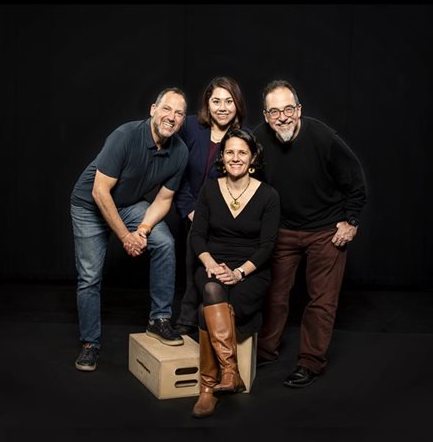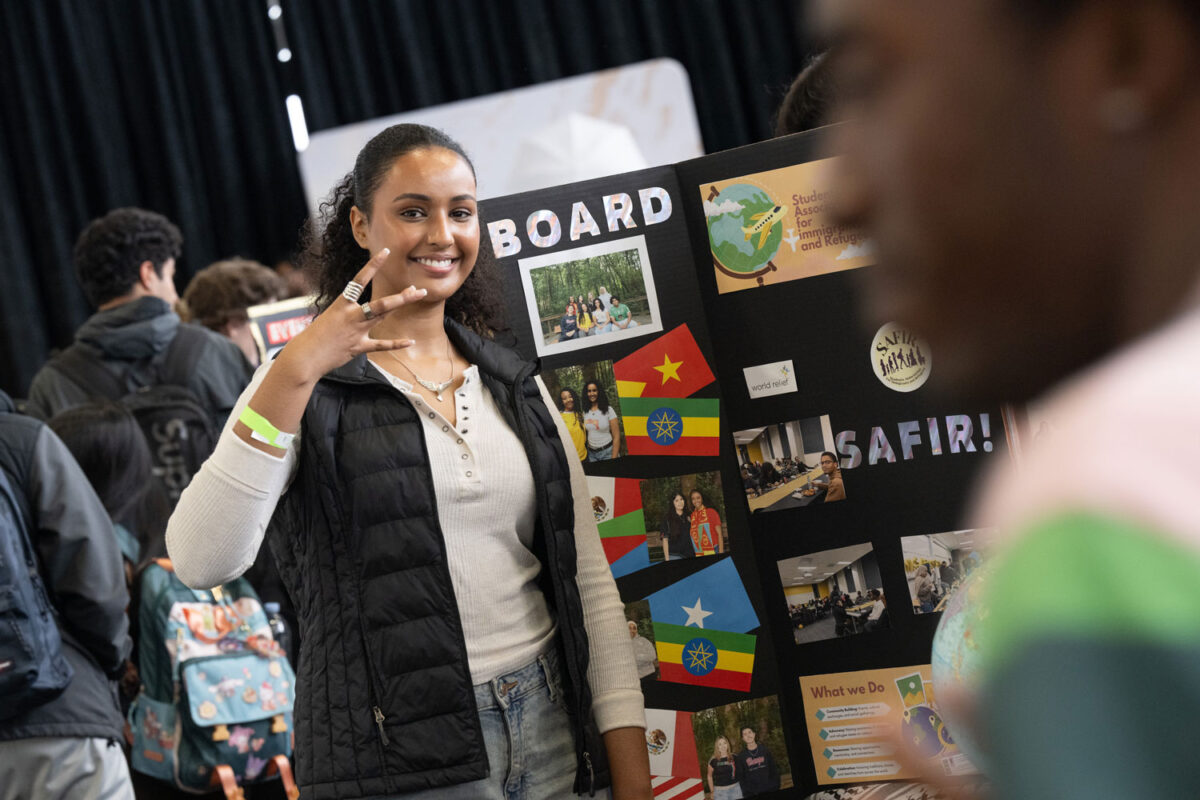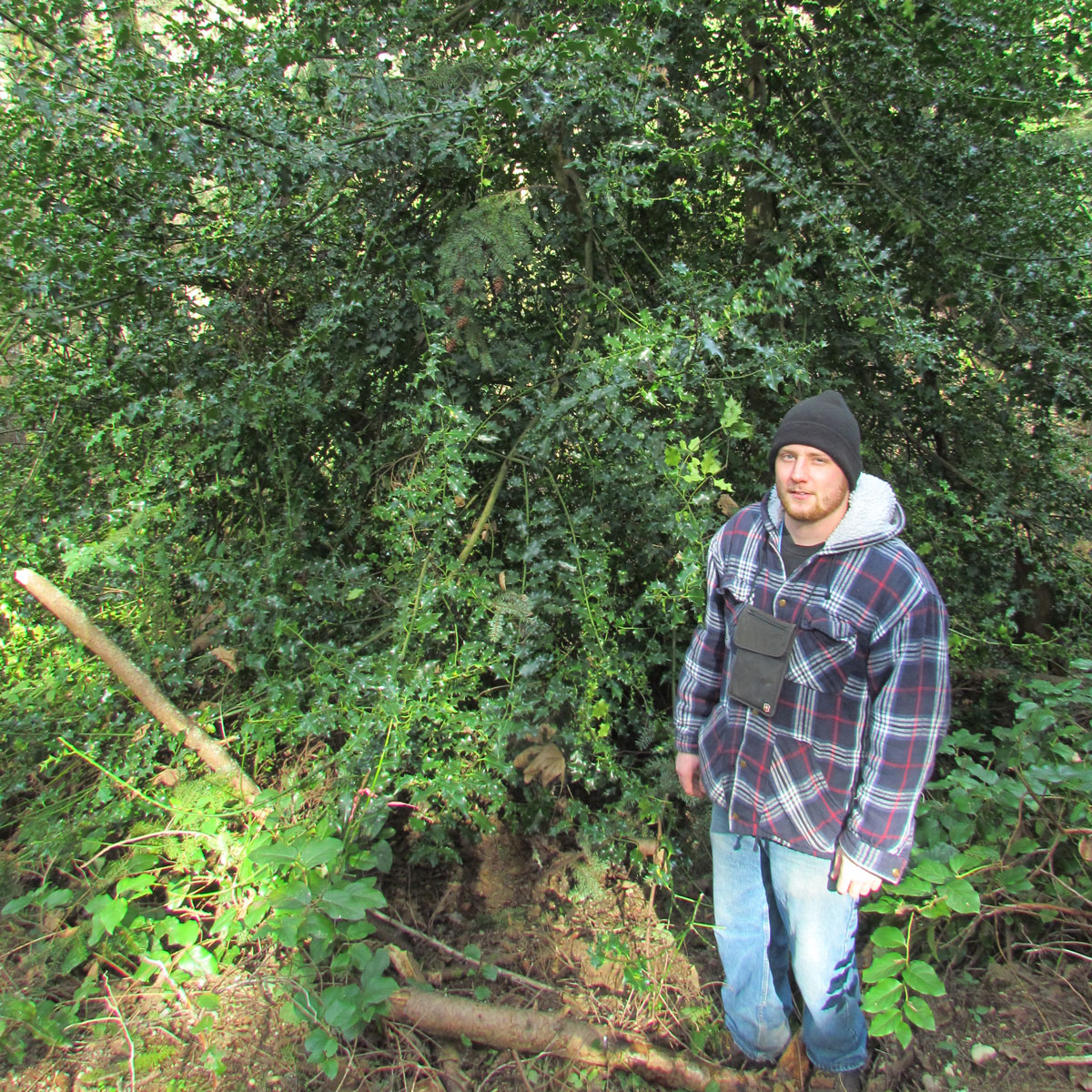
People come to college with more than just ambition and a healthy dose of nerves. They often come with something more powerful: dreams. Dreams of being the first in their family to graduate college, of breaking the cycle of poverty, of defying the odds.
The students who come with such dreams, however, don’t always have the opportunities to make them come true. And this is particularly evident when it comes to studying abroad.
“I ran a few study abroad programs, and I kept seeing really great students having to drop out,” said Dr. Ron Krabill, professor in the University of Washington Bothell’s School of Interdisciplinary Arts & Sciences. “They were primarily students of color, first generation and in a lower socioeconomic bracket — and they weren’t dropping out because they couldn’t get scholarships, but because they had to commit before scholarships were announced.
“I began to get frustrated by the way study abroad was perpetuating privilege and keeping marginalized students from participating.”
In 2017, Krabill and Ben Gardner, associate professor in the School of IAS, proposed a new program called Global Scholars to create a support network for students from diverse groups who historically have not had access to study abroad opportunities. The program officially launched autumn of 2018 with Eva Navarijo, director of Student Services & Advising, and Natalia Dyba, director of Global Initiatives, serving as co-directors.
In 2023, the program has also now been awarded the 2023 Distinguished Teaching Award for Teams.
Affirming student identities
Attending college is already intimidating for many first-generation students and students of color. Many of these students are so focused on just getting by — paying for their education, working jobs and passing classes — that study abroad seems completely out of reach. This is why the team created the program: to prioritize these students and provide the opportunity.
Global Scholars brings traditionally marginalized students together and walks with them every step of the way. The team is there for the students, from helping them complete applications and scholarships to deciding on where they want to study and preparing them for these new experiences both mentally and emotionally.
What also makes Global Scholars so powerful is the cohort bond the student can form when they come together to achieve something that, for many, once seemed impossible.
Feedback from students and alumni alike indicate that Global Scholars often provides important moments in the students’ college careers where they are encouraged to speak from and value their personal experiences as first-generation and/or students of color.
Jennifer Ha (Educational Studies ‘19) said, “As an Asian American woman and a first-generation student, there weren’t many spaces where I felt like I could purposefully talk about my identity. Being asked difficult questions about power and inequality with my cohort of less than 20 peers, I was deeply impacted by all the diverse perspectives and vulnerability that everyone was willing to lean into.
“Global Scholars made me realize how important it is to hold space for students to critically explore and engage global issues relating to race, gender, intersectionality and privilege.”
Because of the many impacts the program has made on students’ professional and personal lives, the team has been recognized with a new University of Washington Award of Excellence that is designed to acknowledge the important role collaboration plays in fostering teaching excellence and classroom innovation. The team will be honored for its significant contributions to student learning at the annual Awards of Excellence Ceremony in June.
A gift that keeps giving
The Global Scholars Program spans the course of one year and begins with preparatory workshops in winter quarter, which are led by Dyba and Navarijo. The workshops are intended to help students chose their global experience, whether that is across the North Pacific Ocean in Japan, across the North Atlantic Ocean in Italy or just a few miles down the road.
She spent summer quarter working with Three Dollar Bill Cinema, an organization that provides access to films by, for and about lesbian, gay, bisexual, transgender and queer people and their families. It also provides a forum for LGBTQ+ filmmakers to share and discuss their work with audiences. “It worked out well as the organization has a lot of global and cultural themes embedded in its mission and also gave Jenny the marketing experience she wanted,” Krabill said.
The experience gave her more than just skills to add to her resume, though. “It had a profound impact on both my academic and personal development,” Ha said. “It made me realize the importance of integrating diversity, equity and inclusion into my work at the School of Business and beyond.
“The Global Scholars program was a lesson and a gift that will keep on giving.”
Embracing experiences and stories
Once students decide where they want to study, Dyba and Navarijo help them with the application process.
“For a lot of the first-generation students and students of color, even the idea of filling out an application for a study abroad is daunting,” Dyba said. “They have ideas about what they should be like or what they should say or do or know, and they don’t believe they are any of those things.
“These workshops allow us to demonstrate to students that they have a lot of valuable experience and knowledge and that, in fact, it is about sharing that — it is about telling their stories that have value, meaning and power.”
Adding to this, Navarijo said, “The discourse of what a successful applicant looks like is very different from what students believe. So a lot of these workshops are, one, about demystifying that, and two, about helping the students really embrace their own experiences and their own stories. That then really carries on throughout the whole program.”
This approach was extremely helpful for Rahwa Gebretsadikan, a senior majoring in Health Studies.
“I was really scared at the beginning of my study abroad application because no one in my family had done it before,” Gebretasadikan said. “But after talking with Natalia and Eva, I felt reassured that I could do it. I feared the tuition because many of the study abroad programs I saw were expensive. I was hesitant because of the high price, but Natalia and Eva helped me apply for the UW Bothell Ambassador scholarship and other scholarships so that I could attend this program.”
A lifelong impact
Students in the program also participate in a three-credit course led by Gardner and Krabill on how they can become global citizens — people who are aware of and understand the wider world as well as their place in it. Ideally, global citizens take an active role in their communities and work with others to make the planet more peaceful, sustainable and equitable.
Through this class, the program fosters an environment that encourages students to “bring their whole selves into the space and recognize that their identities matter and are a source of strength in becoming a global citizen,” Krabill said.
“I think so often marginalized students experience the opposite — that in a traditional classroom setting they should hide their identity or submerge it. I think making a space where their identity is valued and central to their learning becomes really essential.”
The course material is also tailored to students’ wants and needs, Gardner said. “Instead of coming in with a rigid agenda, we actually invite students to bring in content they are interested in and want to have meaningful conversations about as it relates to global citizenship.”
For many students, this class is a highlight of the program. “This class was the best part of my week, every week. And especially on days when I didn’t feel my best, I could always count on this particular class to lift my mood and create a sense of normalcy in a not-so-normal world,” said 2021 participant Nabrath Sheriff (Law, Economics & Public Policy ’22). “My takeaways of course include the conversations, readings and discussions on our identity, privilege and guilt — but my biggest takeaway would have to be the people in the cohort and the relationships and friendships that I was able to build.”
Confidence to dream bigger
In summer, the third quarter of the program, students finally set off on their adventures. Karina Blancas, a senior majoring in Health Studies and in Community Psychology with a minor in Global Health, chose to study in Paris.
“Travel abroad has always been a dream for me — and a dream my parents had for me,” she said. “As the first in my family to go to college, I didn’t think it would be possible, and the resources and opportunities the Global Scholars Program provided were life-changing.
“This experience was my first time on a plane and going out of state by myself, but because of my cohort I didn’t feel alone. I felt ready. Being a Global Scholar is the best thing I’ve ever done.”
Tori Satterfield, a senior majoring in Society, Ethics & Human Behavior with a minor in Diversity and Human Rights, felt similarly. “I didn’t realize how empowering travel could be when done in a mindful way. I thought I was too old to have a transformative experience but having the opportunity to study abroad helped me to grow in unexpected ways. It increased my self-esteem and motivated me to continue finding new ways to grow once I was back home.
“This has resulted in a new journey of self-care and self-love that has helped me find the confidence to dream bigger and become the person I’ve always wanted to be,” Satterfield said.
Hard work yields incredible results
After returning from their international experiences, students next participate in a five-credit course designed to help them integrate what they’ve learned abroad into their lives back home.
“Ironically, one of the most difficult parts of going away is coming back home,” Krabill said. “Reverse culture shock, loneliness and a lack of understanding of their experiences often leave students feeling isolated and unable to process their time abroad.”
The class also moves beyond reflection and asks students to look ahead. “We encourage them to maintain connections with the people they meet and ask the question, ‘Where can I take this next?’” said Navarijo. “We want their experiences to be more than isolated trips.”
Receiving a University-wide award for this kind of integrated and collaborative teaching has re-energized the Global Scholars team. “It is a reminder to recommit to creating access and opportunity for more students — not just in their entry to higher education but also in their participation in all of these other things that the college experience can provide access to,” Krabill said.
Gardner echoed this sentiment, adding, “I think what we’ve been able to accomplish together are a lot of things people talk about in higher education as best practices. Faculty and staff should work together, talk together, listen to each other. We should be more student-centered. And the reality is, it’s hard to do all those things. It’s hard to find the time, space and commitment.
“We’ve all decided to dedicate a lot of time and energy because we really think it’s the way to go,” he said. “Based on student feedback, we are quite convinced of the value of the outcomes.”
To open access to more students, Global Scholars offers local and virtual options for those who, for a variety of reasons, are unable to travel outside of the United States but still seek diverse experiences. Ha participated in Global Scholars in 2022 and was one of the cohort members who decided to stay local. As a business and marketing student, she joined the program to gain further expertise in the field before graduating.



